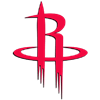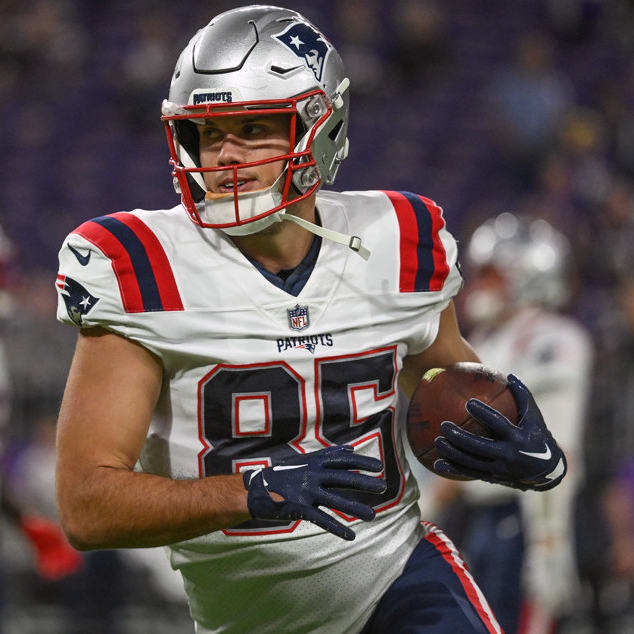In our previous DFS 101 installment, we covered some of the unique aspects of playing NFL DFS on DraftKings, and FanDuel also has some proprietary aspects to the set-up of their NFL contests that bear further examination.
FanDuel offers a $60,000 salary cap that is used to create a nine-player roster, and their scoring system for NFL can be found here. Just as with DraftKings, FanDuel's NFL format has a couple of components that make it unique. Let's delve into these further:
Here's the Kicker: No Flex Position
FanDuel's NFL roster consists of one quarterback, two running backs, three receivers, one tight end, team defense and a position that sets it apart from DraftKings: a placekicker. This presents a strategic contrast to DraftKings' flex position, and it comes into play when setting your daily fantasy football lineups.
The kicker position has long been a source of consternation for many NFL DFS players, as it appears to be the one spot in the lineup that carries the most inherent variance. A kicker largely depends on the performance of his team's offense to even have a chance to score fantasy points, which automatically make their performance fairly difficult to predict.
However, that doesn't mean that we mail it in when selecting a kicker. Some due diligence on pertinent factors, such as an offense's overall effectiveness, their red-zone efficiency, the opposing defense's red zone effectiveness, their own defense's tendency to force turnovers (thereby often setting up the offense in favorable scoring position), weather and a kicker's accuracy from varying distances will help you make the most informed daily fantasy football lineup decisions.
Some of the aforementioned research points might be more-or-less common sense and self-explanatory, particularly if you've already put in your time over the years in season-long leagues.
For example, you probably know that kickers have higher accuracy in the ideal conditions of a dome, that they tend to have more success in better weather when kicking outdoors, and that they tend to have more field-goal opportunities when their team faces a bend-but-don't-break defense that gives up yards but gets stingier in the the red zone.
Selecting a kicker from a team that moves the ball well but bogs down as it gets closer to the end zone also often pays dividends, as under the right conditions, you could see that net as many as 5-to-6 field-goal attempts in a single game.
If you're migrating over from the season-long game, you're also likely familiar with the fact that the stronger the leg on the kicker, the bigger his potential return in terms of fantasy points. As with most season-long leagues, FanDuel awards more points for longer kicks, topping out at five points for any field goal of at least 50 yards.
A Look at the Nuances of Red-Zone Efficiency when Picking Kickers
One factor bears a bit more explanation, namely, how the offense of the kicker's team can help guide your daily fantasy football lineup decisions.
In many cases, targeting kickers with highly efficient red-zone offenses can result in plenty of fantasy points being left on the table. If a team is very effective getting the ball into the end zone when it's inside the 20, that will naturally result in fewer field-goal opportunities for the kicker. With extra points only worth a same single point -- and with those kicks becoming something less than a chip shot given the new distance implemented last year -- selecting a kicker whose team's offense tends to vulture field-goal opportunities is naturally discouraged.
However, it's important to distinguish between a team that simply moves the ball with regularity up and down the field and is generally effective everywhere -- including the red zone -- as opposed to one that isn't necessarily an upper-echelon squad but happens to convert an above-average percentage of red-zone visits into touchdowns. A little perplexed? Let's take a look at an example from 2015 to better illustrate:
The Detroit Lions ranked behind only the Carolina Panthers in red-zone efficiency last season, converting 69.39 percent of their trips inside the opponent's 20 into touchdowns. Taking this into account, it's not exactly surprising to find that Detroit kicker Matt Prater, while converting an impressive 91.7 percent of his field-goal attempts last season, only received 24 tries at three points, the sixth-fewest attempts league-wide. Consequently, Prater's 118 FanDuel points in 2015 placed him a mediocre 19th overall, and only five other kickers who played in all 16 games had fewer fantasy points.
Incidentally, in Detroit's case, this degree of success in the red zone belied the fact that they weren't anything special on offense overall, which also played into reduced opportunities for Prater. The Lions' 358 total points scored ranked them only ninth out of 16 teams in the NFC alone, and eight AFC clubs also outscored them.
By contrast, the Carolina Panthers scored an NFL-best 500 points, and unsurprisingly topped the league in red-zone efficiency as well, converting 69.44 percent of their red-zone appearances into touchdowns. Interestingly, this high degree of success didn't affect kicker Graham Gano's fantasy standing, as he finished with 163 fantasy points on FanDuel, the second-highest total in the league. For all of his team's touchdown-related prowess, he also tied with the top fantasy point-scorer among kickers, the Pats' Stephen Gostkowski, for fifth-most field-goal tries (36) in the NFL.
The top two offenses in red-zone efficiency last season included a kicker whose fantasy value clearly took a hit and one who seemed to simply shake it off and still reward fantasy owners with regularity throughout 16 games. How do these two case studies jive with conventional logic, and what's the takeaway for making better daily fantasy football kicker selections? Simply put, the devil is in the details.
While the Lions were plenty effective at scoring touchdowns in the red zone, they were only 20th out of 32 teams in total offense (346.7 yards per game) and ranked 18th in points per game (22.4). Their offense happened to be proficient within the opponents' 20, even if they weren't a juggernaut as a unit. Therefore, not only were they often vulturing Prater's opportunities when getting within striking distance of the goal line, they were also slightly below league average in terms of moving the ball effectively and getting him in field-goal range. In other words, Prater's results are more or less what we would expect for a kicker on a team that's highly proficient in the red zone, and that also offers the double whammy of not being especially effective at moving the ball well overall.
By contrast, the Panthers were good at scoring in every possible manner. They visited the end zone often, but also moved the ball with such regularity (366.9 yards and an NFL-best 31.3 points per game) that Gano still got his opportunities on many occasions when it came to field-goal attempts. Their case is a bit different, in that their high degree of success in the red zone was only a portion of their overall offensive proficiency; they were consistently moving the ball and getting within field-goal range at a very high rate, spreading the fantasy-point wealth to Gano in the process.
No Bonus For You!
Keep in mind that, at least through last season, FanDuel, unlike DraftKings, did not award any bonus points for 300-yard passing games or 100-yard rushing and receiving performances. This shouldn't affect daily fantasy football strategy too much, but it bears mentioning. Naturally, Antonio Brown or Odell Beckham, for example, are still aptly capable of providing substantial fantasy-point hauls despite the absence of a bonus. Therefore, there really should be no effect on your decision-making process, but be mindful that you don't receive anything extra outside of the corresponding fantasy points under standard scoring when your quarterback, running back or receiver hits those benchmarks.
Possession Receivers Less Valuable?
Another important distinction between FanDuel and DraftKings' NFL contests it the absence of a fantasy-point-per-reception on FanDuel. This can mean a slight downgrade for your high-target but less-explosive possession types such Julian Edelman and Jarvis Landry -- two receivers highlighted as benefiting from DraftKings' points-per-reception system in our first installment -- and an uptick in the already-sky-high value of your more prolific red-zone targets or score-from-anywhere types such as Beckham.
Set It and Forget It
The final, and perhaps most crucial, difference in playing NFL DFS on FanDuel is the absence of a late swap option. Simply put, once the earliest game on the slate kicks off, there is no altering your roster.
On the one hand, this can be a bit of a relief mentally, as there aren't any last-minute injury reports to monitor for the late games. However, it also means that you have to put in that extra bit of research before lineup lock, particularly with those iffy injury scenarios for players whose teams have yet to release their inactives list due to a later kickoff.
In tournament play, a scenario involving a questionable injury status for a typically highly-owned player can sometimes pay off for those with enough ice water in their veins to take him. In cash games, such as 50/50s and head-to-heads, however, you want to play it safe with injuries, as zero points from a last-minute inactive can completely sabotage an otherwise solid lineup. A potential alternative on weeks when there are just too many late-game injury questions is to simply play an "early only" or "4:00 p.m. only" slate, thereby eliminating the guesswork altogether.









































